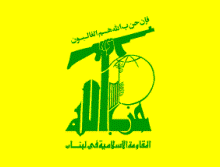
By: Emile Hokayem,
Last Wednesday, the Lebanese Druze leader Walid Jumblatt met the Syrian president, Bashar Assad. It was the culmination of a year of repentance for his previously anti-Syrian stance following the 2005 assassination of his ally, the former Lebanese prime minister Rafik Hariri.
Mr Jumblatt’s notorious political shifts would embarrass even the most vigorously swinging pendulum. In 2007, he called Mr Assad “the dictator of Damascus, a savage, an Israeli product, a liar and a criminal”. Last month, he apologised on air, saying such comments were “unworthy and unusual, unsuited to the ethics of politics even during a quarrel”. And on Thursday, he described his meeting with Mr Assad as “excellent, friendly, honest and very positive”.
He proceeded to announce that he would embrace Syria’s Lebanese allies and their agenda – from unconditional support of Hezbollah’s armed status to a denunciation of UN and Lebanese demands for a complete normalization of relations between Lebanon and Syria.
While he had previously called for a truce with Israel to insulate fragile Lebanon from regional conflicts, he now pledges total adherence to pan-Arab causes. That includes armed resistance to recover the Israeli-occupied Shebaa Farms, a tiny piece of land that has become one of Hezbollah’s excuses for perpetual resistance.
Theatrics aside, there is no denying that the political manoeuvring of Mr Jumblatt, the leader of a tiny community with understandable existential fears, has always reflected the political balance inside Lebanon – a balance closely intertwined with Syria.
In 2008, it was Mr Jumblatt who provoked the violent Hezbollah takeover of Beirut and whose fighters confronted the its militiamen in the Druze mountain stronghold. From that episode and the lack of international reaction, he concluded that Hezbollah’s armed control of the streets and alliance with Syria and Iran outmatched its domestic foes.
Indeed, the anti-Syrian coalition won the 2009 elections, only to lose the political battle after France and Saudi Arabia, two of its foreign backers, rekindled ties with Damascus. This is why Mr Jumblatt asked the Hezbollah leader, Hassan Nasrallah, to intercede on his behalf with the Syrian president.
Mr Nasrallah, however, had more pressing concerns on the day of Mr Jumblatt’s Damascus visit. He was busy countering rumors that the UN Special Tribunal for Lebanon, set up to prosecute individuals for the murders of Mr Hariri and other anti-Syrian figures, was targeting his organization.
In an interview, Mr Nasrallah acknowledged that several Hezbollah members had been questioned by UN investigators, but said they were witnesses, not suspects. He dismissed in harsh terms the rumors as an attempt to tarnish his movement’s image.
But, if Hezbollah were indeed implicated in Mr Hariri’s assassination, as several foreign press reports of varying reliability have asserted recently, it would profoundly shake Lebanese politics.
The how and why of alleged Hezbollah responsibility are debated ad nauseam in Beiruti salons, despite the secrecy of the Tribunal’s proceedings. Were the Syrians and Iranians involved or informed? Could the Hezbollah leadership have been blindsided by its own security apparatus? What could the motive be?
The problem for Hezbollah is that ever since an international investigation was put in place, it has fought to impede it, questioned its legitimacy and decried the loss of Lebanese sovereignty.
Twice it has blocked the government over issues relating to the Tribunal, which Lebanon partially funds and staffs. The assumption then was that Hezbollah was doing Syria’s bidding. Now, the reasoning goes, it looks like Hezbollah was simply protecting its own back.
At the same time, the investigation has been inconclusive after five years of work. The October 2005 finding that high-level Syrian intelligence figures were implicated was watered down. Four Lebanese generals who controlled the country’s security services at the time of Mr Hariri’s killing were released last year because no valid charges could be pressed against them.
The case against Hezbollah is, just as Mr Nasrallah pointed out, mostly in the media. And the court has suffered from the departure of several key officials, perhaps an indication of internal frustration and mismanagement.
In fact, the lackluster performance of investigators has prompted speculation that their rapprochement with Syria has led western and Arab countries to tone down their support for the court. This is doubtful, although the early enthusiasm has significantly waned in Paris, Riyadh and Washington.
But if the reviled Hezbollah, rather than the now-courted Damascus, were the culprit, the rumor goes, perhaps this reluctance would evaporate. Some analysts already argue that Damascus is throwing Hezbollah under the bus or that the blame, if any, will be placed on the shoulders of Imad Mughniyeh, the Hezbollah security chief who was assassinated in Damascus two years ago.
The new concern in Beirut is that any indictment of a Hezbollah member, let alone an improbable extradition or sentencing, could lead to destabilization, but that refraining from an indictment on those grounds would mean that blackmail triumphed over justice.
The conundrum of those Lebanese who fought Syria for political emancipation is that their most powerful tools, justice and foreign support, seem utterly inadequate when faced with regional and political realities.
It is probable that Mr Jumblatt’s turnaround has much to do with this messy state of affairs. Other Lebanese politicians, including the prime minister Saad Hariri, are in an even less comfortable position. It is only now that Lebanon realizes the implications of discovering who was behind the Hariri assassination.
* Political Editor

Leave a Reply
You must be logged in to post a comment.